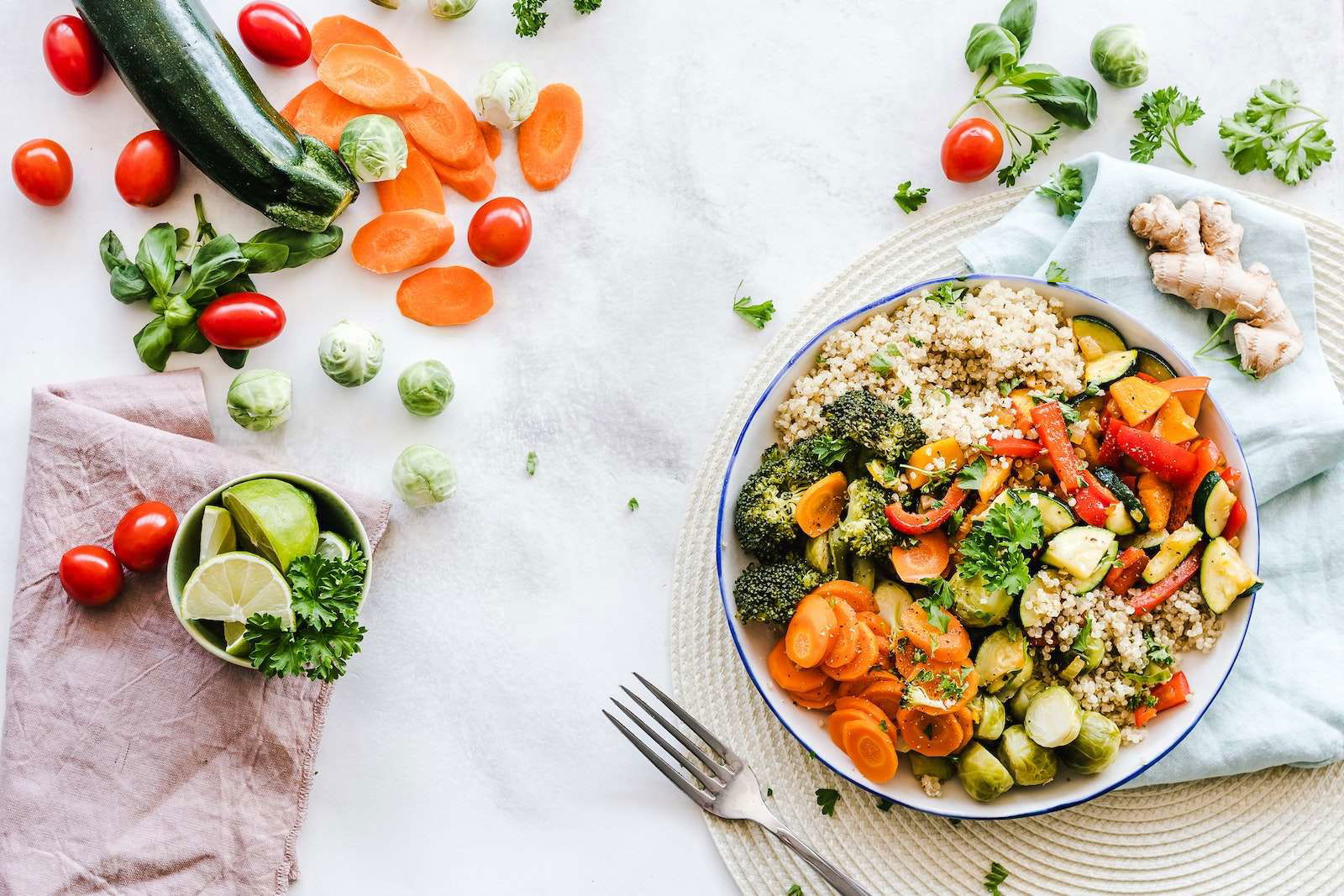The Importance of a Balanced Diet
Eating a balanced diet is essential for maintaining good health and wellbeing. When we focus on eating a wide variety of health promoting food we ensure we provide our bodies with the necessary nutrients to function correctly. This can help prevent many health problems such as obesity, diabetes, heart disease, some cancers and so much more. A balanced diet should include a variety of foods from different food group – when thinking of what foods to focus on, thing whole foods – foods that are minimally processed such as fruits, vegetables, nuts, seeds, legumes and whole grains.
What is a Balanced Diet?
A balanced diet is one that contains all the essential nutrients in the right amounts to keep the body healthy. We don’t need to go into detail tracking each individual nutrient – when we focus on eating a balanced diet we will make sure we meet our nutrient needs. A balanced diet should include a variety of fresh fruits and vegetables, whole grains, legumes, nuts and lean proteins. Eating a variety of different foods ensures that you get all the vitamins, minerals and other important nutrients your body needs to stay healthy.
Benefits of Eating a Balanced Diet
Eating a balanced diet has many benefits for overall health and wellbeing. Here are some of the main ones:
- Improved energy levels – A balanced diet helps provide your body with the energy it needs to stay active throughout the day. Eating nutrient-rich foods such as fruits and vegetables can help boost your energy levels so you can be productive at work or school.
- Improved digestion – Eating a balanced diet helps support healthy digestion by providing your body with enough fiber to keep things moving along smoothly. Foods high in fiber such as beans and whole grains can help reduce bloating and constipation while also keeping you full for longer periods of time. If you’re struggling with including higher fibre foods in your diet, try adding them in very slowly so you give your body time to get used to them.
- Reduced risk of chronic diseases – Eating a balanced diet can help reduce your risk of developing chronic diseases such as diabetes, heart disease and some cancers by providing your body with essential nutrients it needs to stay healthy. Eating plenty of fruits and vegetables can also help reduce inflammation which is linked to many chronic diseases. Research shows us that eating dietary patterns that focus on whole foods can reduce our risk of many different diseases.
- Weight management – Eating a balanced diet can also help you manage your weight effectively by providing your body with enough calories to fuel it throughout the day without excess calories from processed snacks or sugary drinks. Eating nutrient-dense foods such as lean proteins, healthy fats, fruits and vegetables will keep you fuller for longer periods of time so you don’t have cravings for unhealthy snacks in between meals. However a balanced diet is flexible and for those wanting to gain weight or muscle mass there can be space for more processed foods to help meet energy needs.
Foods to Limit When Following a Balanced Diet
When following a balanced diet there are certain foods that should be limited in order to get all the essential nutrients needed for optimal health. The reason for this is when we include large amounts of processed foods we tend to consume less whole, nutrient dense foods:
- Highly processed food – Processed food often contains added sugar, salt or trans fats which can increase your risk of developing chronic diseases or gaining unwanted weight if consumed in large amounts over time. It is best to avoid highly processed food when possible or limit them if they cannot be avoided completely.
- Red meat & processed meats – Red meat has been linked to an increased risk of cancer when eaten in large amounts over time so it is best to limit consumption when following a balanced diet. Processed meats such as bacon, sausage and salami should also be limited due to their high sodium content which can increase blood pressure levels if eaten regularly over time.
- Added sugar & salt – When eating processed foods it is easy to consume a large amount of excess sugar and salt. The calories in processed foods can add up quickly, and without realising it it can be easy to consume an excess of our energy requirements which can lead to weight gain over time. Salt intake should also be reduced by avoiding processed & pre-packaged foods which contain high amounts of sodium that could lead to an increased risk of hypertension.
- Trans fats – Although trans fats are now largely removed from our food supply they may still be in small amounts in many processed & pre-packaged foods & have been linked to an increased risk of heart disease if consumed regularly over time so they should be avoided when possible or limited if they cannot be avoided completely when following a balanced diet.
- Alcohol – Alcohol should also be limited when following a balanced diet due its potential negative effects on overall health if consumed in large amounts over time including liver damage, increased risk of certain cancers & impaired judgment among other things so it is best to limit alcohol consumption when possible or avoid it altogether when trying to maintain good health & wellbeing through eating a balanced diet.
Everyone’s Dietary Needs Are Different
It is important to remember that everyone’s dietary needs are different depending on age, gender, lifestyle, goals & activity level among other factors so it is recommended that you speak with a qualified nutritionist before making any major changes in order to find out what works best for you personally based on your individual needs & goals in terms of health & wellbeing through a plan tailored specifically for you!
Conclusion
In conclusion, eating a well-balanced diet is essential for maintaining good health and wellbeing by providing our bodies with all the essential nutrients needed for optimal functioning while limiting processed foods which may increase our risk of certain chronic diseases. Remember when making change, start small. If you’re wanting to eat healthier, don’t worry about trying to change your whole diet at once. Focus on just having a healthy breakfast for example. To help you we have a bunch of free recipes on our website and if you need further support – contact Planted Nutrition, one of Auckland’s leading Nutritionists today for your free discovery call and get started on your journey towards optimal health and wellness.





0 Comments